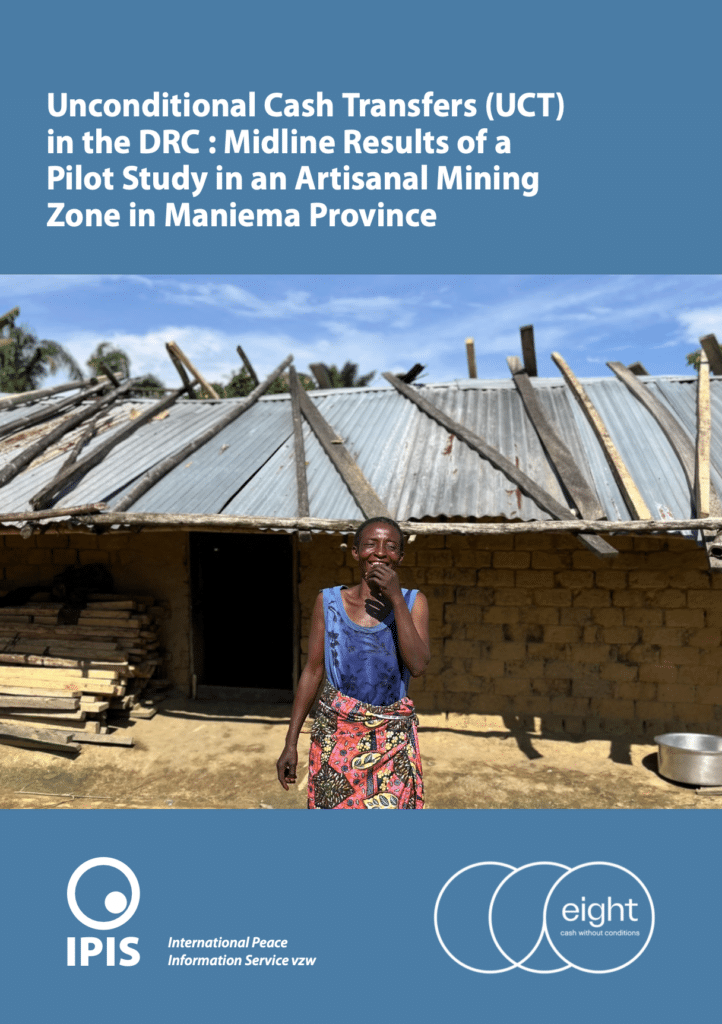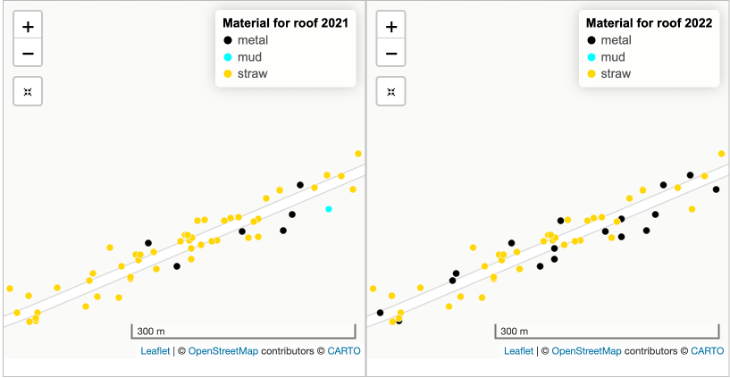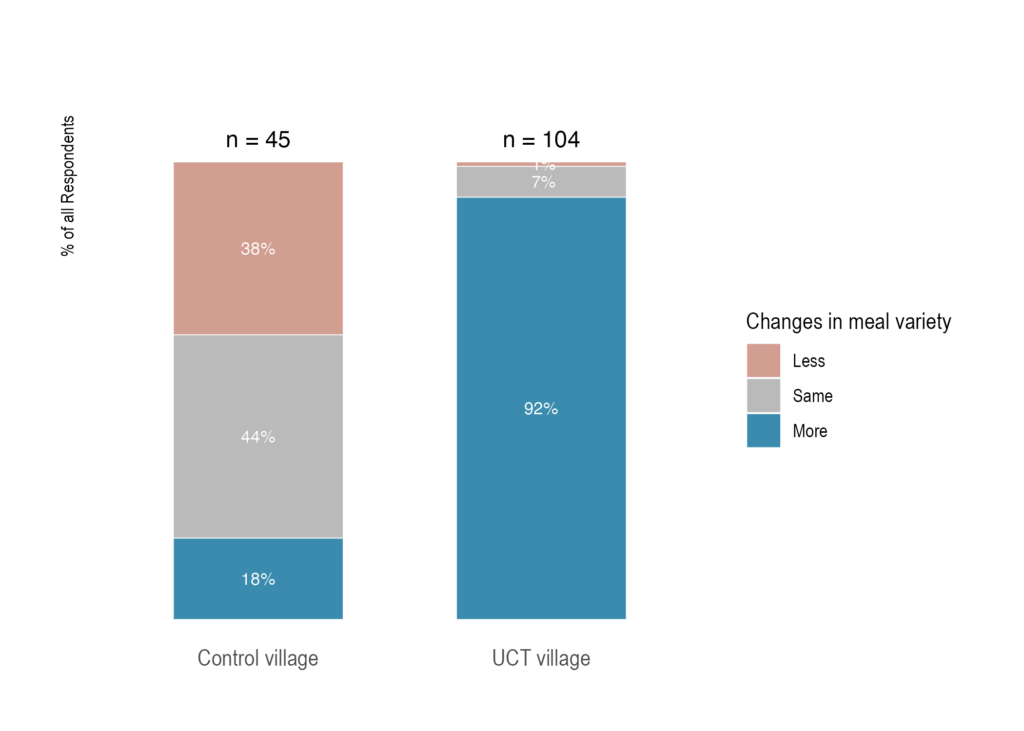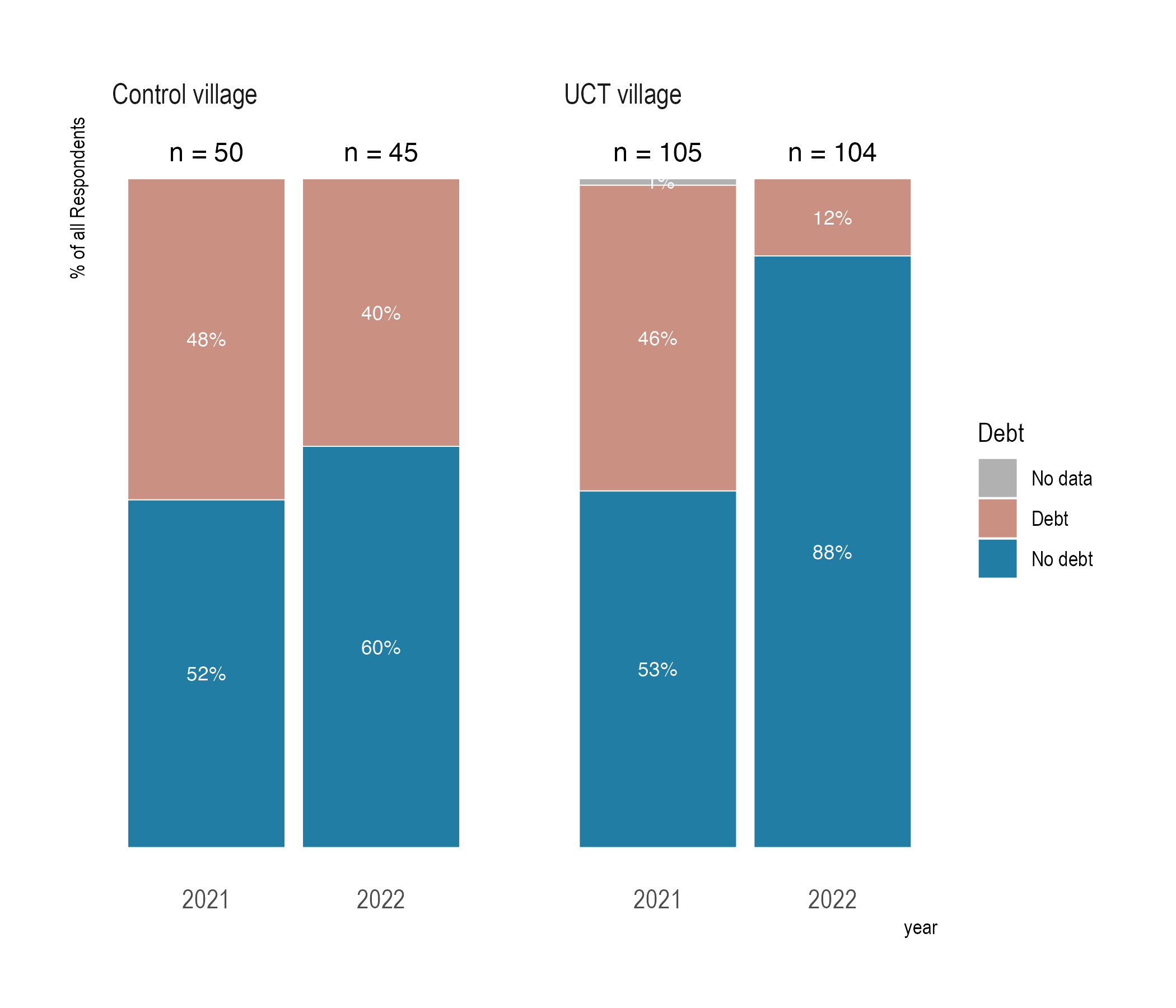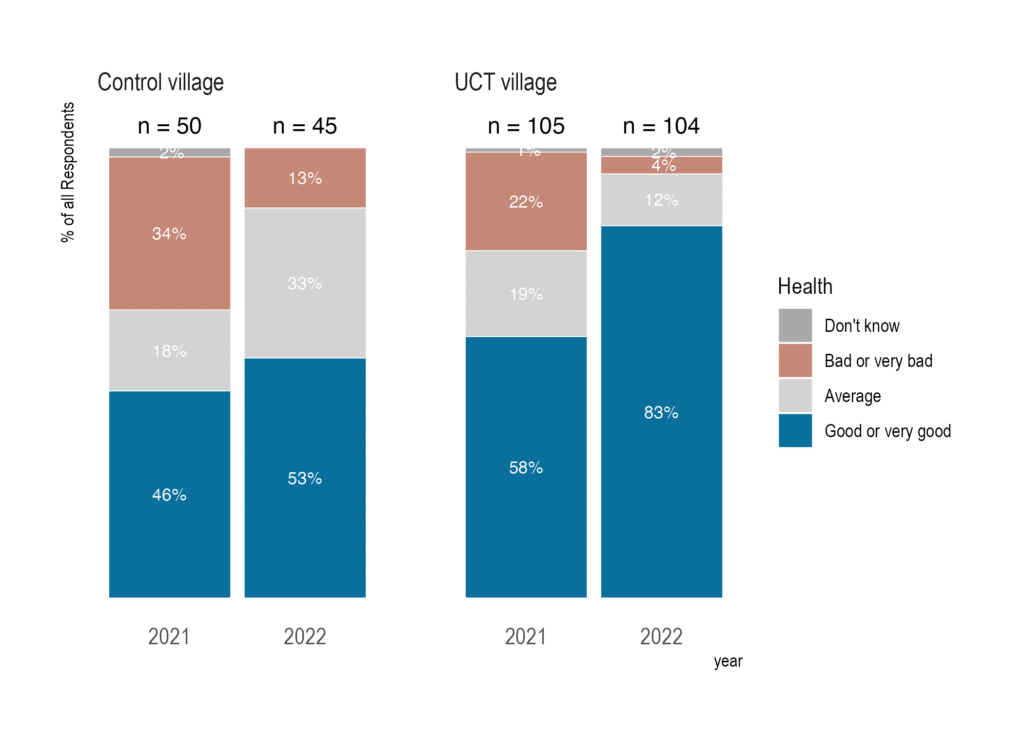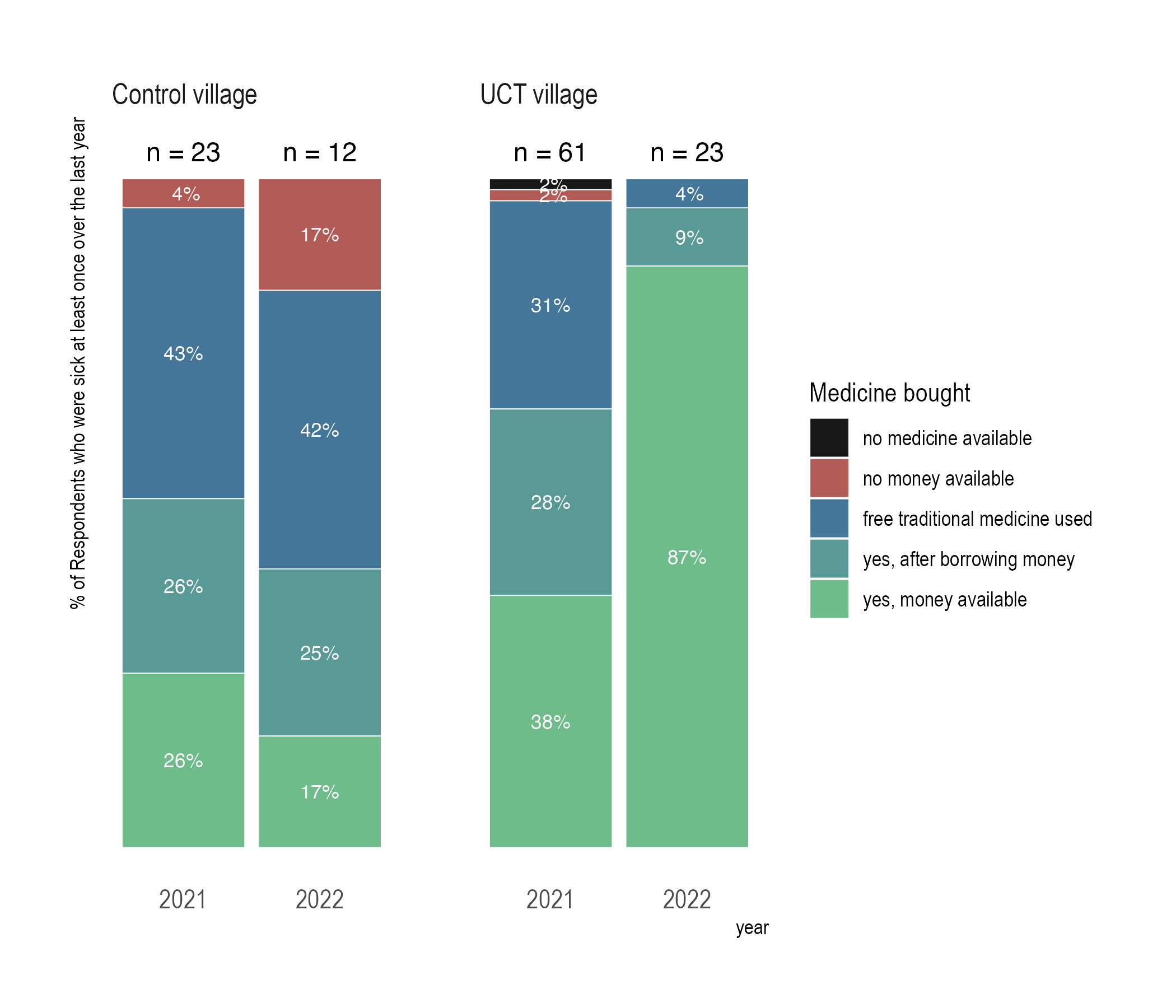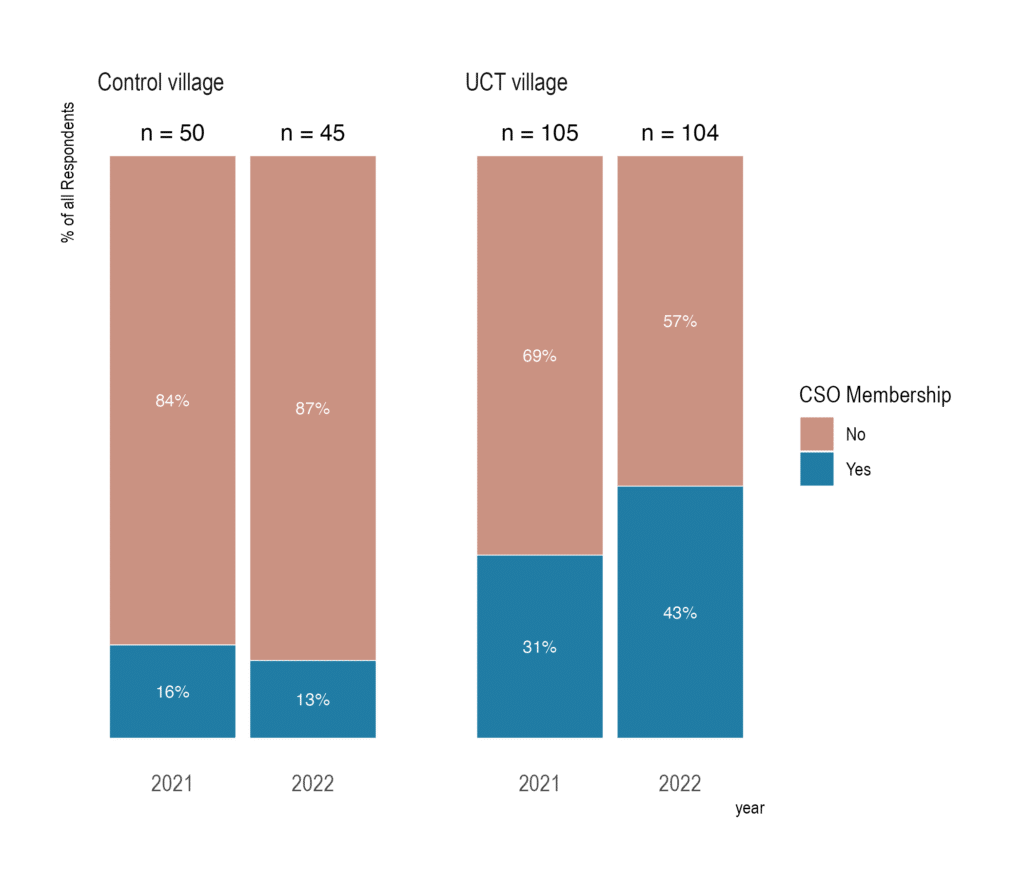In October 2021, the Belgian non-profit organization Eight World, started a pilot project of Unconditional Cash Transfers (UCT) in a village in an artisanal mining zone in the territory of Pangi, in Maniema Province, in the Democratic Republic of Congo (DRC). Eight World transfers cash directly to individual beneficiaries via a mobile money system. Each adult living in the UCT village receives 20 USD per month via her/his phone, during a period of two years, and each child in the village receives monthly 10 USD during the same period. The beneficiaries are free to decide how to spend the money, not constrained by pre-specified requirements.
One year after the start of the UCT program, International Peace Information Service (IPIS) conducted a controlled midline study to monitor indicators related to the socio-economic, physical, and mental well-being of UCT recipients. IPIS assesses the emancipation and empowerment of the UCT recipients via a comparison between the UCT village and the Control village before (baseline) and after (midline) the launch of the UCT program. After one year of cash transfers, substantial changes were observed in the UCT village for several key indicators, compared to the Control village. These observations show evidence that the intervention has had a positive effect on the socio-economic well-being of UCT recipients in a village located in an artisanal mining zone of Maniema province.
Variety of occupations and private entrepreneurship
With fewer people working in the mine, the variety of professional occupations has improved and more people take on other jobs. Concomitantly, private entrepreneurship seems to be stimulated, resulting in an increase in small businesses. Moreover, compared to the control group, more UCT recipients have invested in professional mining and farming tools as well as in protective mining equipment.
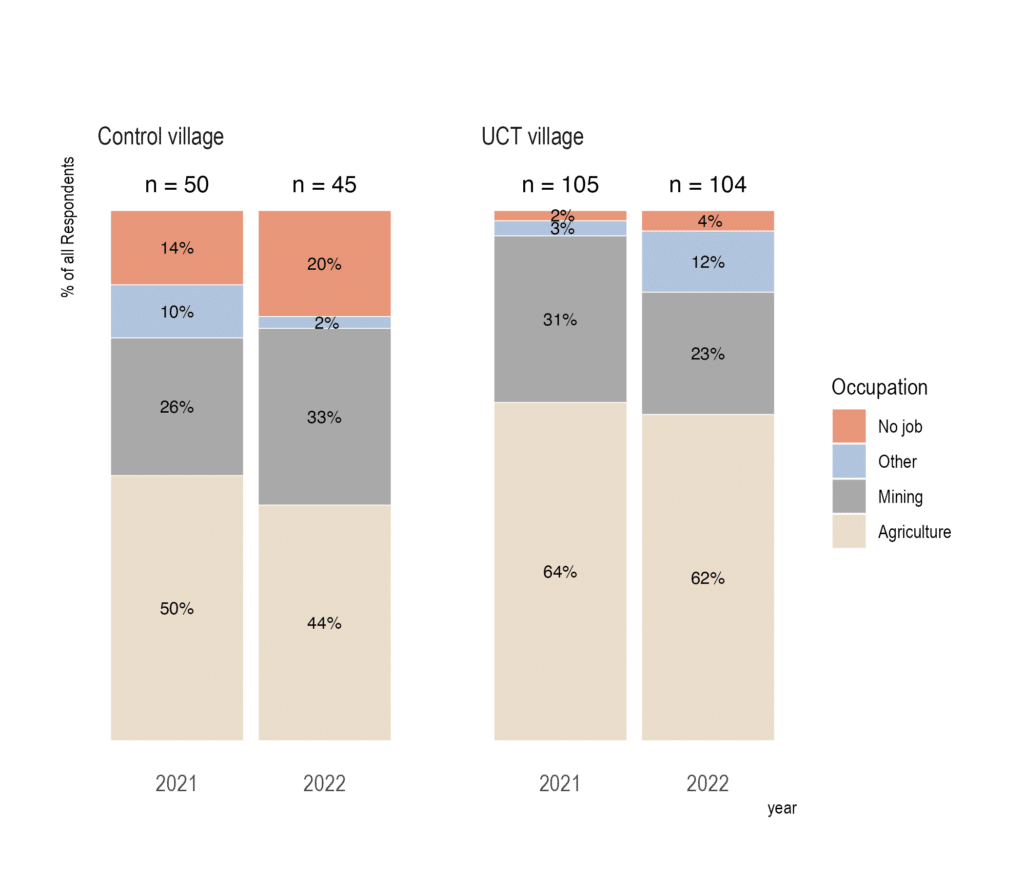
Investment in professional equipment
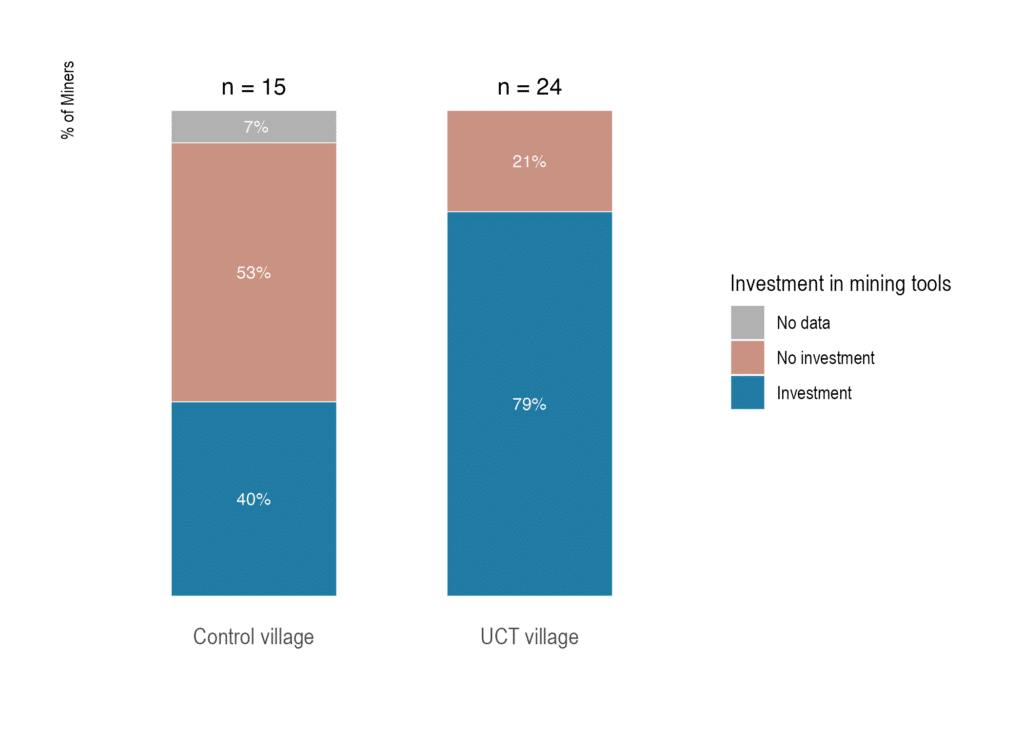
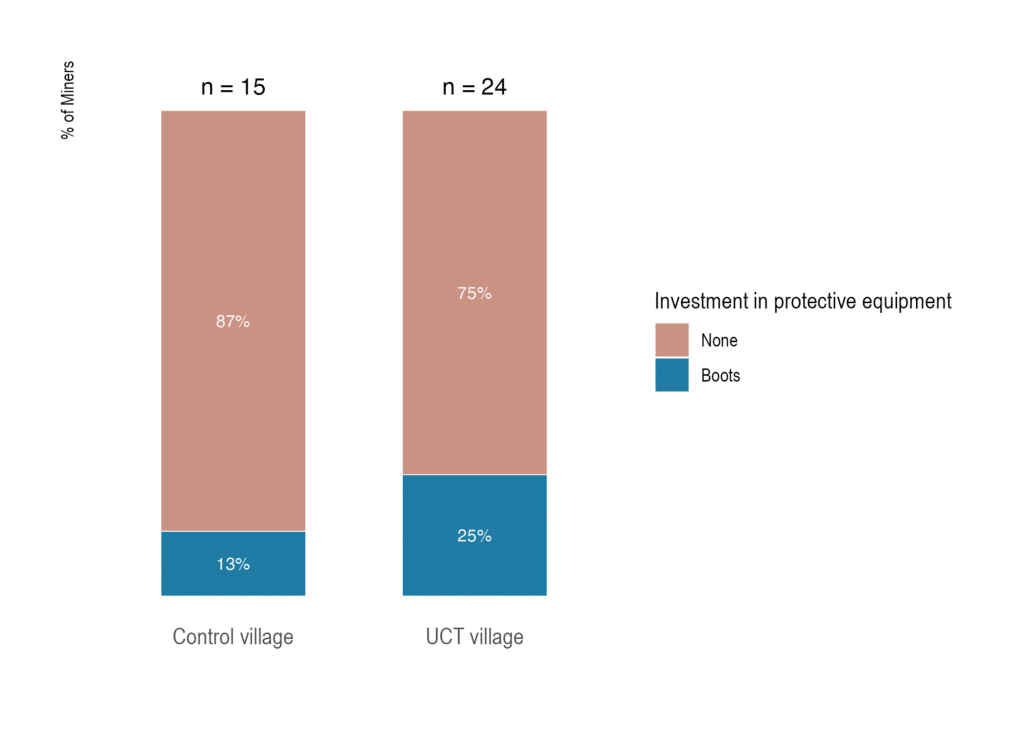
Improved quality of housing
Quality of housing is an important poverty indicator. More than half of the UCT recipients have confirmed that they have invested in the improvement of their house (compared to 15.6% in the Control village). After one year of UCT, the number of households living in a house with a metal roof has substantially increased (from 6 to 17).
Improved food consumption and diet variety
At midline, more than 90.0% of UCT recipients assessed their diet as more varied compared to one year ago (18.0% only in the Control village). Moreover, the UCT village saw a sharp increase in the weekly spending on food (from 6,750 to 20,000 Fc according to the head of household).
Improved health perception and ability to afford medication
More people in the UCT village assessed their health as ‘good’ or ‘very good’, compared to the baseline, and the Control village. Moreover, a larger proportion of people in the UCT village who have been sick in the past year, confirmed that it had enough money to buy medication.
Increased participation in Civil Society Organisations (CSO)
More people in the UCT village participated in CSOs (mainly savings associations), compared to the baseline. Females did not contribute to this increase.
Our results demonstrate a change for several key indicators in the UCT village one year after the start of the intervention, whereas such change did not occur in the Control village, or only to a lesser extent. These observations show evidence that the intervention has had a positive effect on the socio-economic well-being of UCT recipients in a village located in an artisanal mining zone of Maniema province.
Picture: ©Rwothomio Kabandole (Eight)

This study has been conducted in the framework of a project implemented by Eight world vzw and financed by the Belgian Ministry of Development Cooperation (DGD)

